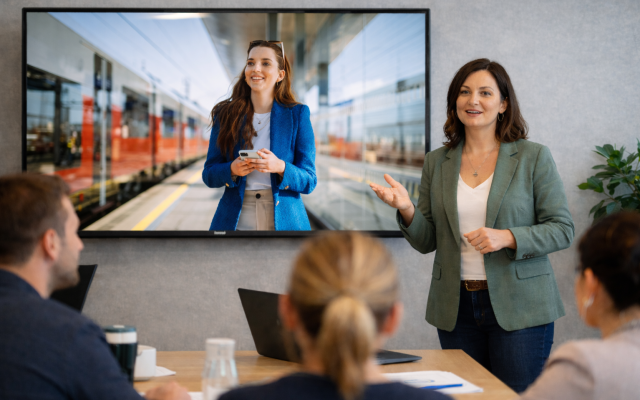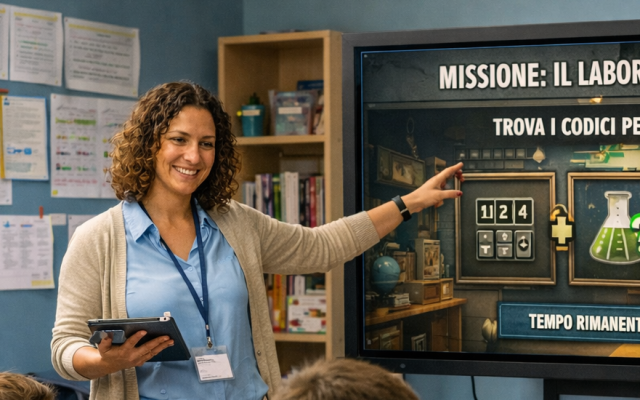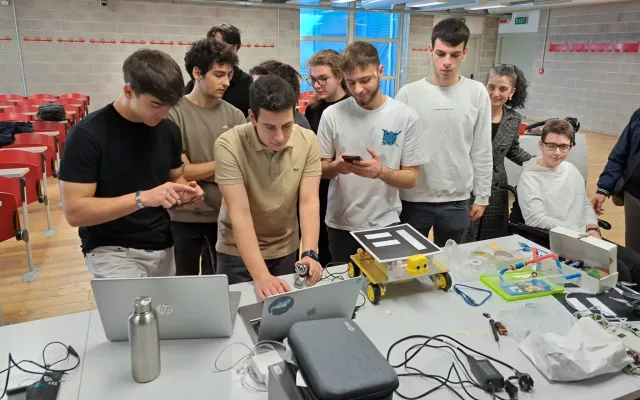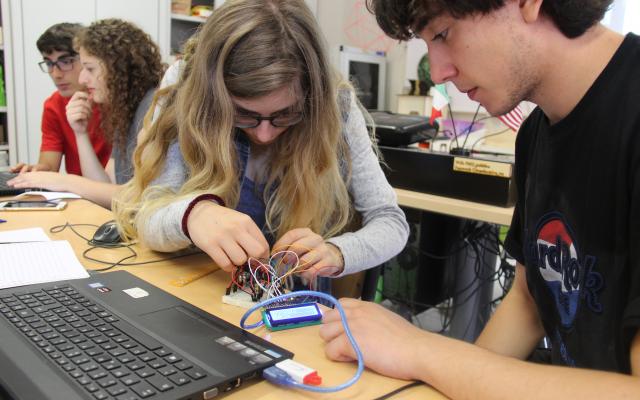In Milan, the final session of Mind the Gap with the Personal Ecosystem Canvas
In Milan's Municipality 4, the three-year Mind the Gap project, promoted by ActionAid Italia (lead partner) together with the Municipality of Milan, Fondazione Mondo Digitale and Junior Achievement Italia, is coming to an end. The project aims to combat educational poverty and strengthen the role of the educational community.
Among the various actions planned, Fondazione Mondo Digitale, together with Junior Achievement, curated activities dedicated to lower secondary schools: training and motivational courses that integrate creativity, digital technologies and the development of transversal skills.
Orientation means knowing oneself
On Monday 24 November, class 3ª D of the Via De Andreis comprehensive school in Milan concluded its three-year course with a self-assessment and orientation session led by psychologist and trainer Tullia Romanelli, using the Personal Ecosystem Canvas (PEC): a tool for personal and collective development, designed by scientific director Alfonso Molina, which helps students recognise their strengths, weaknesses, growth objectives and strategies for achieving them. This is a valuable activity at a stage in life when the traditional question “What do you want to be when you grow up?” makes less and less sense. In a rapidly changing world of work, the real educational question becomes: “Who do you want to be when you grow up?” What values, what personal skills, what vision of the future does each young person want to build?
“I have often wondered why this kind of awareness is expected at an age when doubts clearly outweigh certainties,” says Tullia. ‘Especially in pre-adolescence and adolescence, when everything is the opposite of everything else, when you are struggling to build a group of friends, to navigate between parents who are incomprehensible and often perceived as pushy, and demanding teachers. All this with a body that is changing and in which, suddenly, you no longer recognise yourself.’ Even as adults, we often don't have clear ideas: ‘It seems that with each new cycle of education, the answer should be closer and closer, yet as adults we ourselves are not always sure we have found it.’
The trainer's perspective
Tullia Romanelli's testimony realistically and delicately conveys the intensity of the encounter: "I expected perplexity and fatigue... instead, I was immediately inundated with questions: Are we really going to use a tool to get to know each other? Why is a psychologist teaching us? How can I know today what I will want to do in 15 years' time?‘
The PEC requires an imaginative effort: thinking about the future when time, in pre-adolescence, passes very slowly and very quickly at the same time, and ’tomorrow is a very difficult concept to conceptualise".
“Being able to imagine yourself as a solicitor, doctor, electrician or footballer requires motivation, passion and a touch of youthful recklessness. It also requires dreaming and believing that anything is possible,” says Romanelli, struck by the maturity of the contributions. “I am heartened to see young people who are not looking for shortcuts and do not sugarcoat the complexity: they know that a difficult future awaits them and that much depends on them”.
The impact of the Personal Ecosystem Canvas on guidance
The experience with the Personal Ecosystem Canvas demonstrates how important it is to provide young people with effective guidance tools to help them reflect on relationships, values, aspirations and future choices. In a school system where, according to Inapp, less than 30% of schools implement systematic early guidance measures, the PEC can fill a crucial gap: it transforms guidance from a choice “by exclusion” to a continuous process of self-knowledge, giving young people the “compass” they need to face complex transitions with greater awareness and well-being.
Mind the Gap: a community project
The session with the PEC was part of a comprehensive local project, which in Municipality 4 included:
- STEAM, making, videomaking, coding and robotics workshops
- participation and citizenship courses
- activities for young people in the neighbourhood at CAM Mondolfo
- training for teachers, educators and social and educational service operators.
The overall objective is to strengthen the role of schools and the educational community by developing inclusive and sustainable responses to educational poverty and supporting young people during the delicate phases of school transition. The day at IC De Andreis demonstrates that when time and space are created for self-reflection, even in the third year of middle school, it is possible to begin to imagine the future with seriousness, openness and confidence.
- laboratori Steam, di making, videomaking, coding e robotica
- percorsi di partecipazione e cittadinanza
- attività per i giovani del quartiere al CAM Mondolfo
- formazione per docenti, educatori e operatori dei servizi socioeducativi.
L’obiettivo complessivo è rafforzare il ruolo della scuola e della comunità educante, costruendo risposte inclusive e sostenibili alla povertà educativa e supportando i ragazzi nelle fasi delicate di transizione scolastica. La giornata all’IC De Andreis lo dimostra: quando si crea tempo e spazio per riflettere su di sé, anche in terza media è possibile iniziare a immaginare il futuro con serietà, apertura e fiducia.




